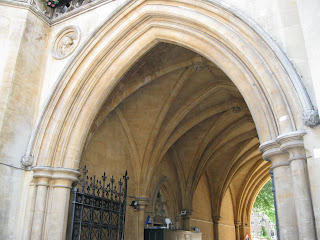I am a Library and Information Science student through Florida State University's online LIS Master's Program and was fortunate enough to be selected for the International Studies Summer Abroad Program in Multimedia Design. I will be learning about digital photography, podcasts, digital stories, and photo books while in London and Paris. One of my initial assignments before we leave the United States will be to write a paper on Web 2.0 and how it applies to libraries, including an interview with a librarian who actually "walks the walk." Pam Harland, the Library Media Specialist at Plymouth, New Hampshire, Regional High School has graciously consented to allow me to interview her on this fascinating subject, and we will be using a basic Web 2.0 format, the blog, to conduct the interview. Thank you, Ms. Harland, for agreeing to talk with me.
Let's start with the basics. Can you tell me a little about yourself and your school? And how would you define Web 2.0 in layman's terms?








